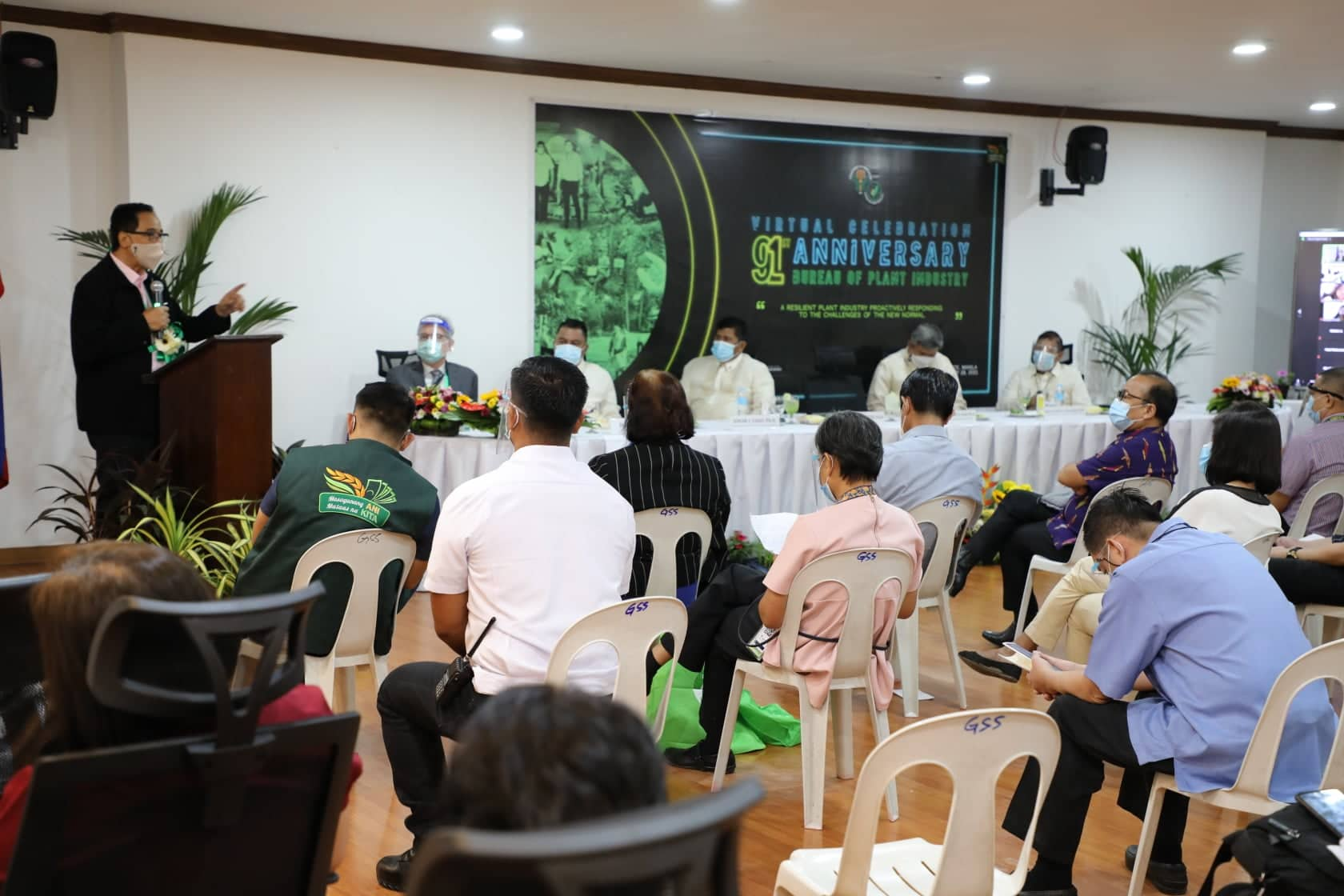
Agriculture Secretary William Dar challenged the Bureau of Plant and Industry (BPI) to regain its luster and glory of yesteryears, and reboot into an improved and resilient agency under the ‘new normal.’
“In my younger years, the BPI was a well-revered institution, when it comes to research and other services. Let’s bring back the pride and glory of BPI,” said Secretary Dar, challenging bureau officials and staff, led by director George Culaste, during their 91st founding anniversary, on January 28, 2021, in San Andres, Manila.
On top of leading the continued development and modernization of the country’s plant industry, the agri chief urged the BPI to focus on high-value crops that have a competitive advantage in the global market.
“Further, we want a ‘rebooted’ BPI to play a key role in our relentless efforts to provide Filipino farmers and other stakeholders with modern technologies and crop varieties that are resistant and resilient,” Secretary Dar said.
He also urged the bureau to continue providing farmers needed technical support to enable them to produce nutritious, affordable, and world-class crops and other food products.
In addition, he said the Department of Agriculture (DA) will lean on the BPI in the expanded implementation of urban agriculture — to include community gardening in various schools, barangays, and subdivisions nationwide — under the umbrella Plant, Plant, Plant program.
“Pag-igtingin pa natin ang urban agriculture with BPI as the lead. This will be your identity during this pandemic. Continue to showcase it inside your station, here and in the various strategic areas na meron kayong heavy presence,” Secretary Dar said.
He instructed the BPI to expand the program in vacant lots and other idle areas in the metropolis, and other urban cities nationwide.
“Isama na natin ang mga paaralan kahit wala pa ang face-to-face learning. Yung mga malalaking vacant areas ng mga paaralan. Let us optimize these spaces. Coordinate with relevant authorities. Let’s partner with them,” Secretary Dar said.
“Gayun din sa Gulayan sa mga Barangay, sa mga village at subdivision dito sa Metro Manila. Community farming will be our approach,” he added.
The DA chief said that while BPI will continue providing seeds and seedlings to households, the major strategy from hereon is to target barangays and communities, using a business model wherein they would sell their produce within their respective areas during harvest time and thus they won’t depend on public markets.
To bankroll the expansion, Secretary Dar directed Director Culaste to realign the BPI’s budget to significantly support urban agriculture not only in the National Capital Region but also in other urban areas, including BPI regional centers.
“Harness your budget, 25-30 percent should be realigned for urban agriculture, and also to support increased production of vegetable seeds and seedlings by various BPI regional centers,” he told Director Culaste.
He added that urban agriculture is one way to mitigate high food prices by providing Filipino households with fresh vegetables produced right in their backyard and community gardens.
Thus, urban agriculture is also an effective strategy to improve food availability and accessibility and attain food security.
In all, he told BPI officials and staff: “You are building the credibility and identity of BPI if you heavily invest in urban agriculture, including the distribution of quality seeds and seedlings in metro areas including the provinces.” ### (Rita dela Cruz, DA StratComms)














